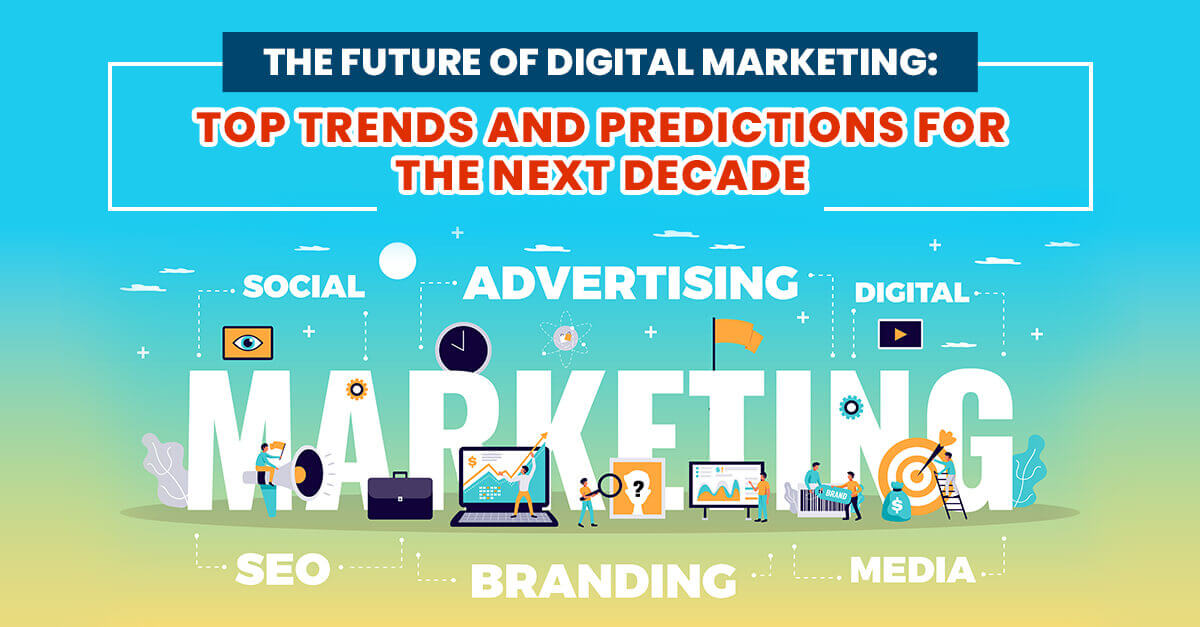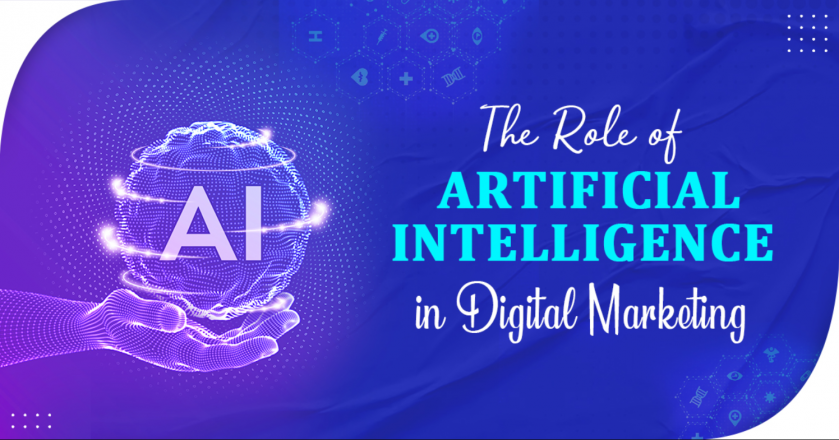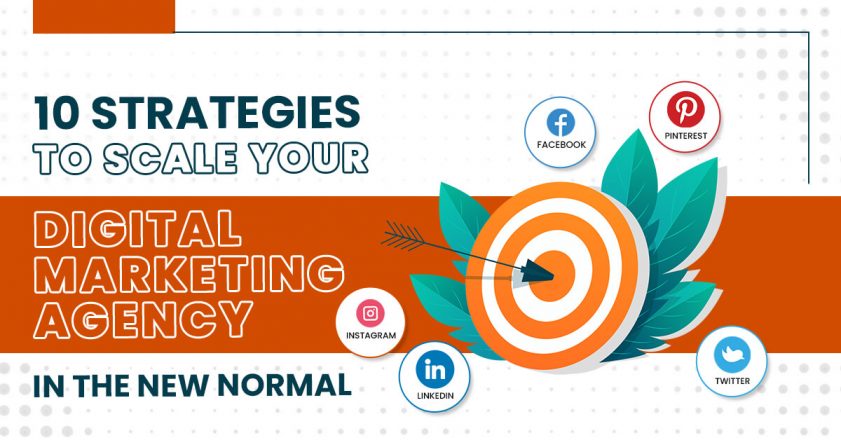Digital marketing has revolutionised the way businesses connect with their target audience. Over the years, we have witnessed significant advancements and transformations in the digital landscape. As we step into a new decade, it is essential to explore the top trends and predictions that will shape the future of digital marketing.
Artificial Intelligence (AI) Integration
AI has already had a significant impact on digital marketing, and its integration is set to grow in the next decade. AI-powered tools and algorithms such as chatbots and automated email campaigns help save time and resources. They enable marketers to automate tasks, analyse huge amounts of data, and gain valuable insights into customer behaviour.
In the future, AI will become widely adopted and enable marketers to deliver highly personalised and targeted campaigns. By analysing customer data, AI algorithms can identify patterns, preferences, and trends, allowing businesses to tailor their messaging and offers to individual customers. We can expect more innovative uses of technologies in digital marketing in coming years.
Voice Search Optimization
The popularity of voice assistants like Alexa and Google Assistant has led to a surge in voice search queries. This hands-free technology will be the standard way to interact with devices. To adapt to this trend, digital marketers must optimise their content for voice search. Unlike traditional text-based queries, voice search queries tend to be longer and more conversational in nature.
Marketers should focus on incorporating conversational keywords and phrases into their content to align with how people speak when using voice search. Structured data markup is also crucial for search engines to understand and display relevant information in voice search results. Additionally, aiming for featured snippets can increase visibility in voice search, as voice assistants often read out these concise, informative snippets.
Video Marketing Domination
Video content has become increasingly popular, and its dominance will continue to grow in the next decade. Cisco predicts that video will account for a significant portion of internet traffic. To leverage this trend, digital marketers must incorporate video marketing strategies into their campaigns to engage and convert customers.
Creating high-quality, engaging video content that resonates with the target audience is key. Brands can utilize various formats, including product demos, tutorials, behind-the-scenes footage, and user-generated content. Live streaming can also play a vital role in building real-time connections with the audience. Interactive video elements, such as shoppable videos or interactive storytelling, provide a more immersive experience and drive higher engagement.
Influencer Marketing Evolution
Influencer marketing has grown hugely recently and has become a powerful tool for brands to reach their target audience authentically. In the next decade, influencer marketing will continue to evolve, focusing more on micro-influencers and long-term partnerships.
The most popular influencing platforms such as Instagram and YouTube enable influencers to gain millions of followers and earn good income by collaborating with brands. Micro-influencers, with smaller but highly engaged audiences, offer niche expertise and more genuine connections with their followers. Brands will increasingly collaborate with these influencers who align with their values and target demographics. Long-term partnerships allow influencers to establish trust and credibility with their audience, leading to more impactful campaigns.
While influencer marketing offers great ROI, there are few setbacks which need to be looked after such as fake followers and sponsored posts. These issues impact their authenticity and reduce their followers.
Rise In Visual Search, Virtual Reality (VR) and Augmented Reality (AR) Technologies
Visual search, Augmented Reality (AR), and Virtual Reality (VR) technologies are rapidly advancing and will play a transformative role in digital marketing. AR allows users to overlay virtual elements onto the real world, while VR creates fully immersive virtual environments.
Visual search enables users to search for products using images instead of text. This is especially beneficial for users who do not know what the product is or cannot describe the product. For example, a user can search online a part of mobile using its picture. To ensure that customers reach their products on their websites, brands should put high-quality images of their products, provide descriptive information about their product and use metadata to credit those images to their brand.
Brands can leverage AR to offer virtual try-on experiences, allowing customers to visualise products in real-time before making a purchase. With the help of AR, in-store experiences are also enhanced by offering interactive displays and product description. VR, on the other hand, can transport users into virtual environments for product demonstrations, virtual events, or virtual tours.
As AR and VR technologies become more accessible and affordable, their integration into marketing campaigns will provide unique and engaging experiences for customers, driving brand awareness, and boosting sales.
Data Privacy and Personalization
With increased scrutiny on data privacy, marketers will need to navigate stricter regulations and consumer expectations. Data protection will be a top priority, requiring transparent data collection practices and user consent. However, customers will also demand personalised experiences. Striking the right balance between privacy and personalization will be crucial for marketers to build trust and deliver relevant content.
Future of Social Media
Social media will make its presence in every area of our lives in future and is predicted to increase in future.Social media platforms are evolving into powerful sales channels, and the rise of social commerce will continue in the next decade. Features like shoppable posts, in-app purchasing, and social influencers driving sales will become more prevalent. Brands will need to optimise their social media presence, provide high-quality services and offers, and develop deeper understanding of customers.
Conclusion
The future of digital marketing promises exciting developments that will reshape the way brands connect with their audience. As artificial intelligence, voice search, video marketing, and immersive technologies continue to evolve, marketers must adapt their strategies to stay ahead. Embracing trends such as influencer marketing, data privacy, and social commerce will be crucial for businesses aiming to thrive in the next decade. By staying informed and leveraging these emerging trends, digital marketers can create meaningful connections, enhance customer experiences, and drive business growth in the dynamic world of digital marketing.





